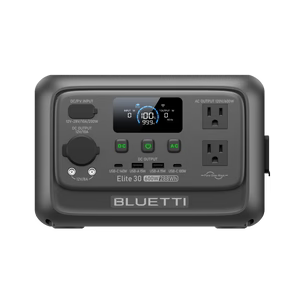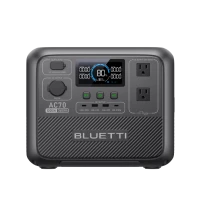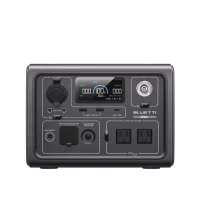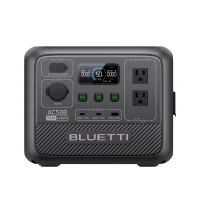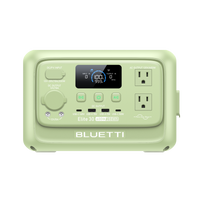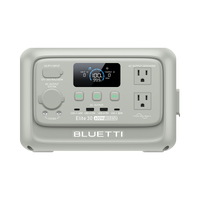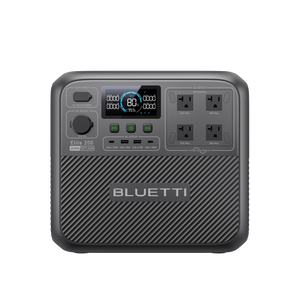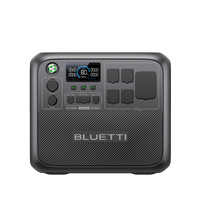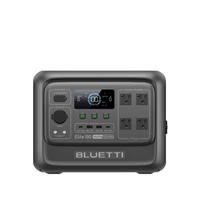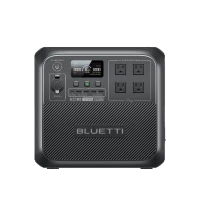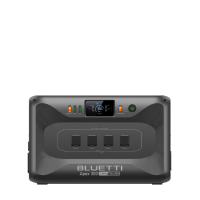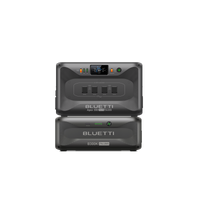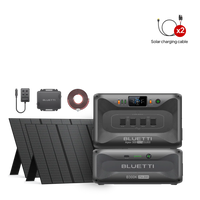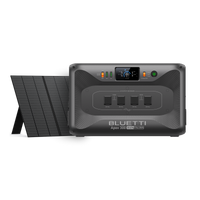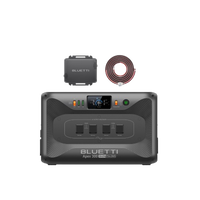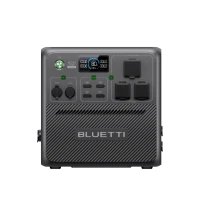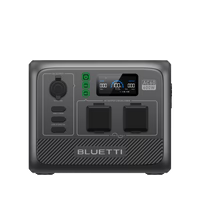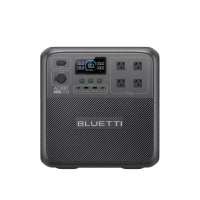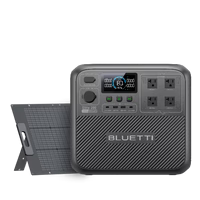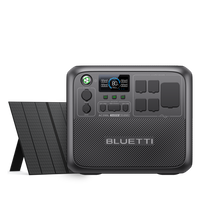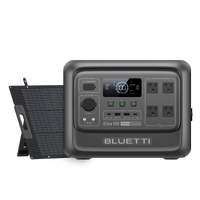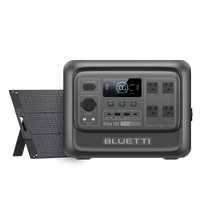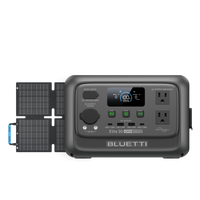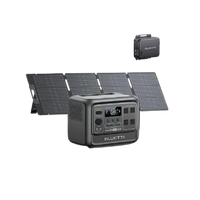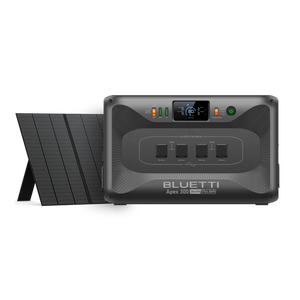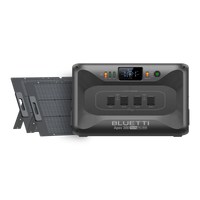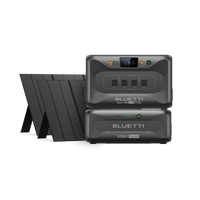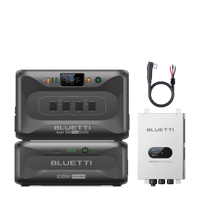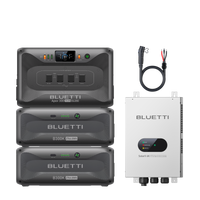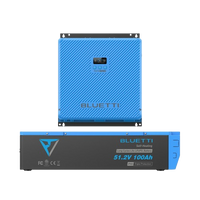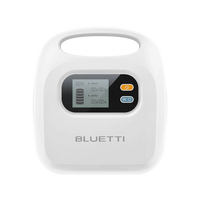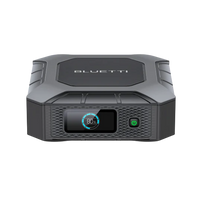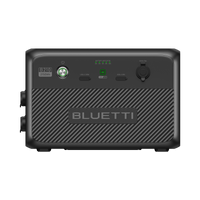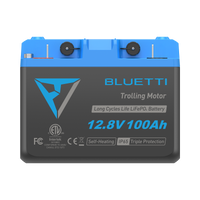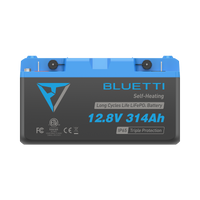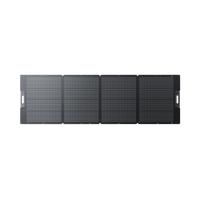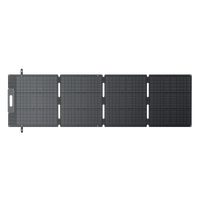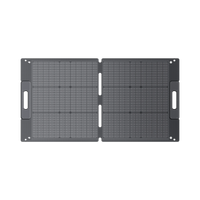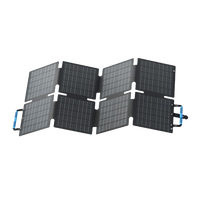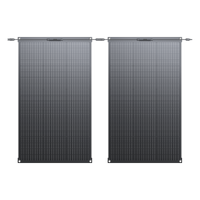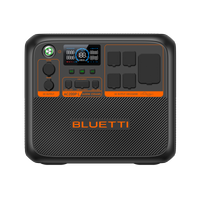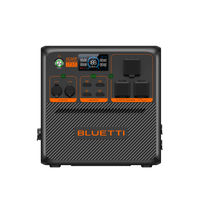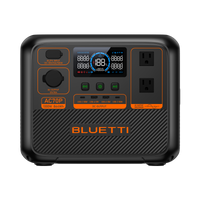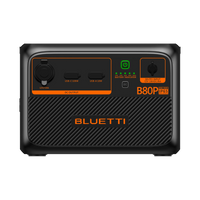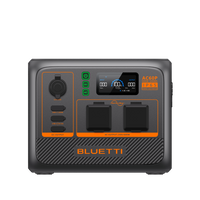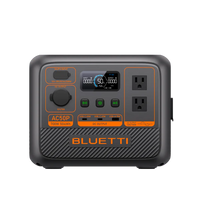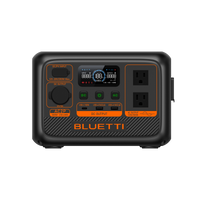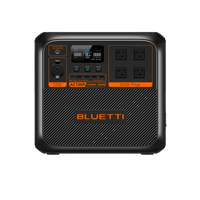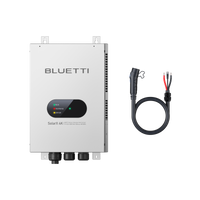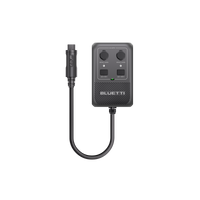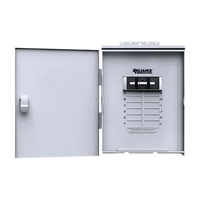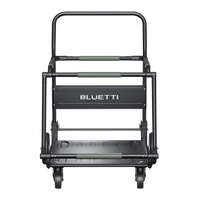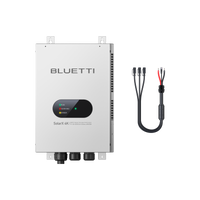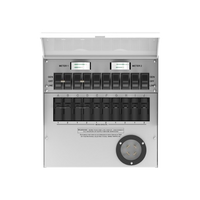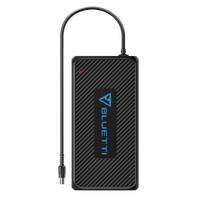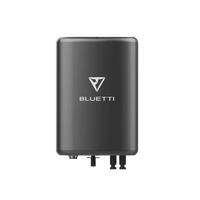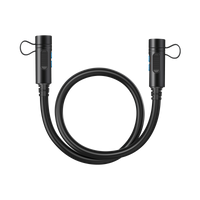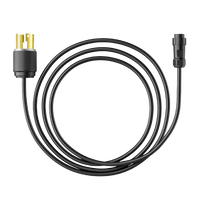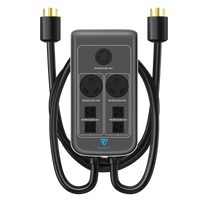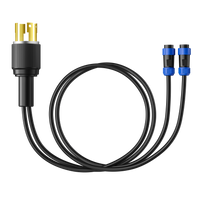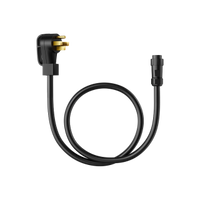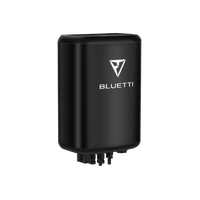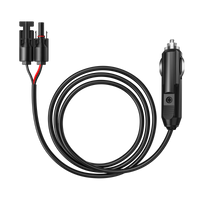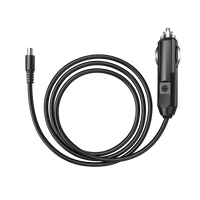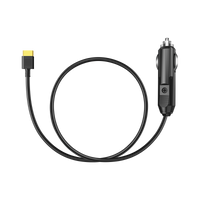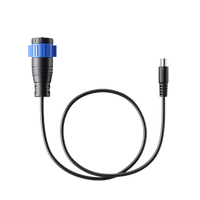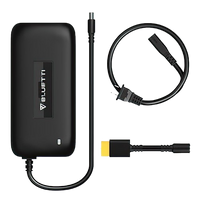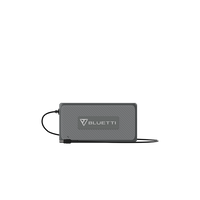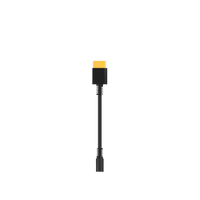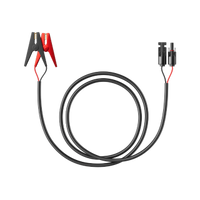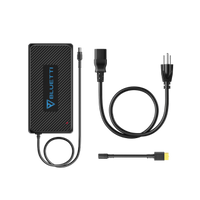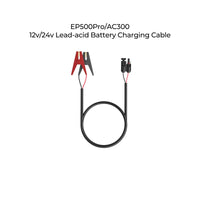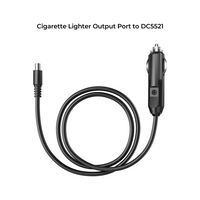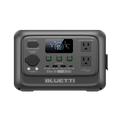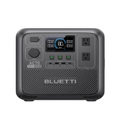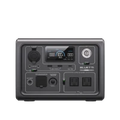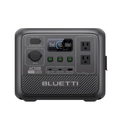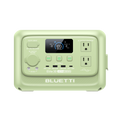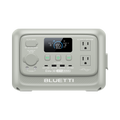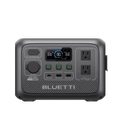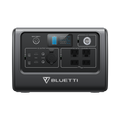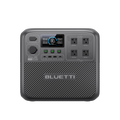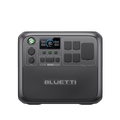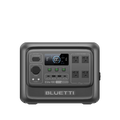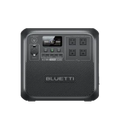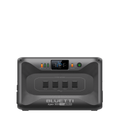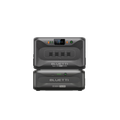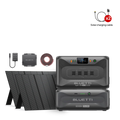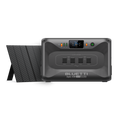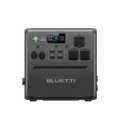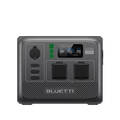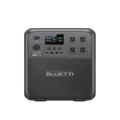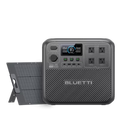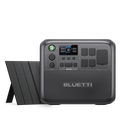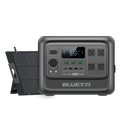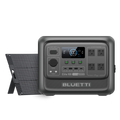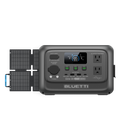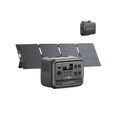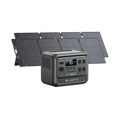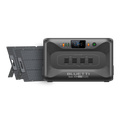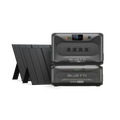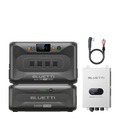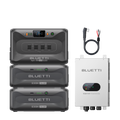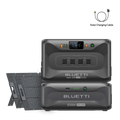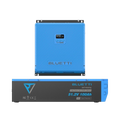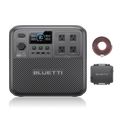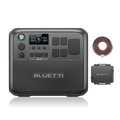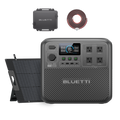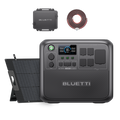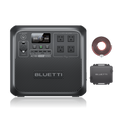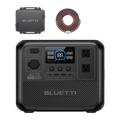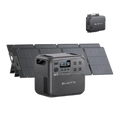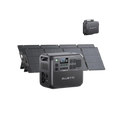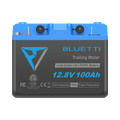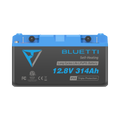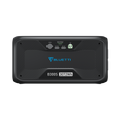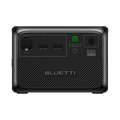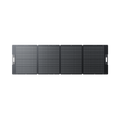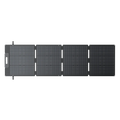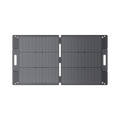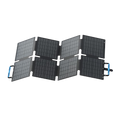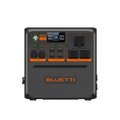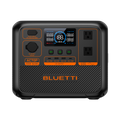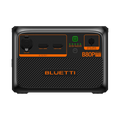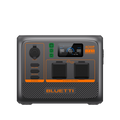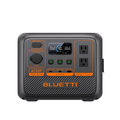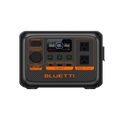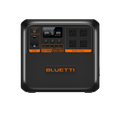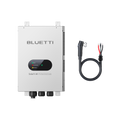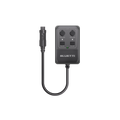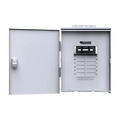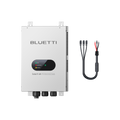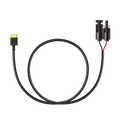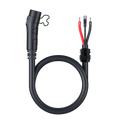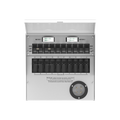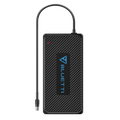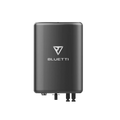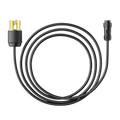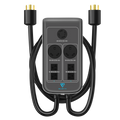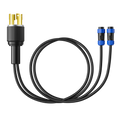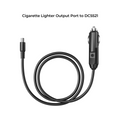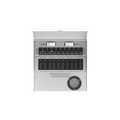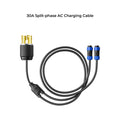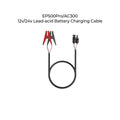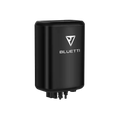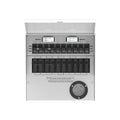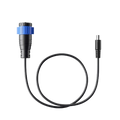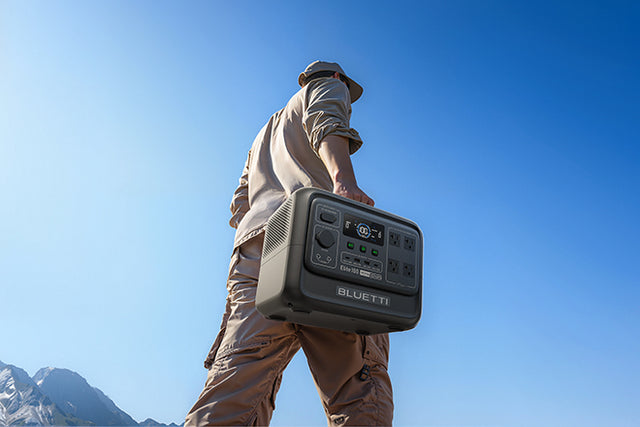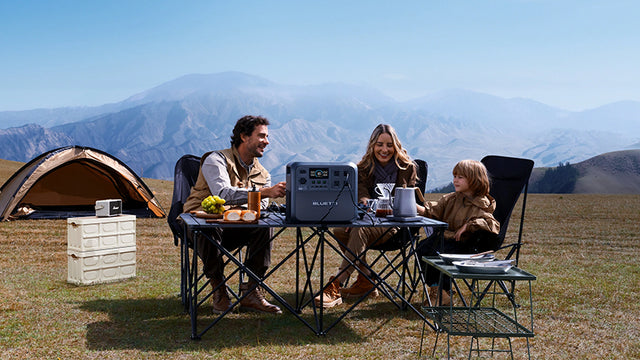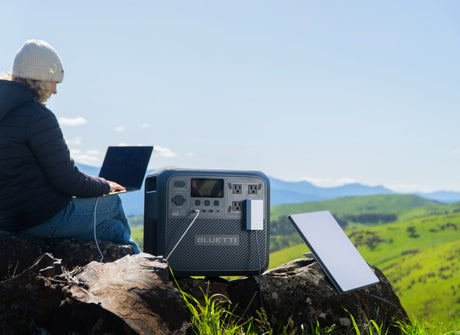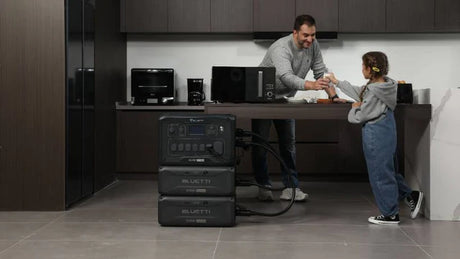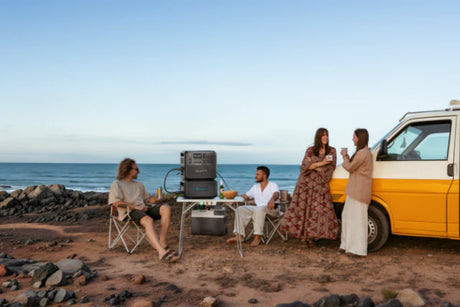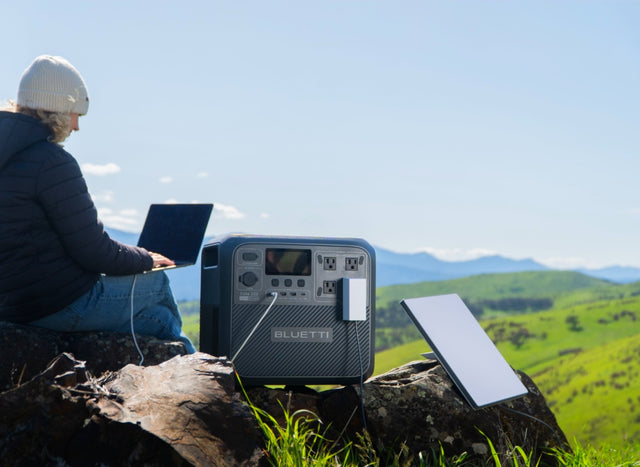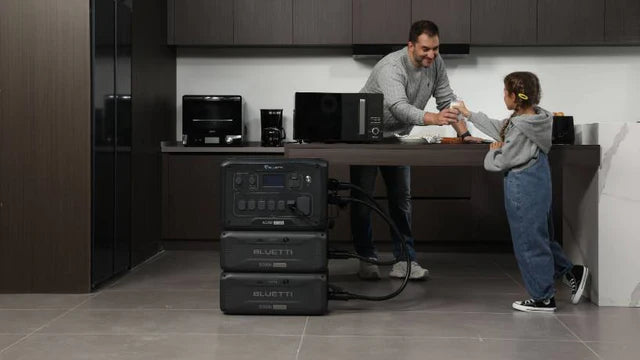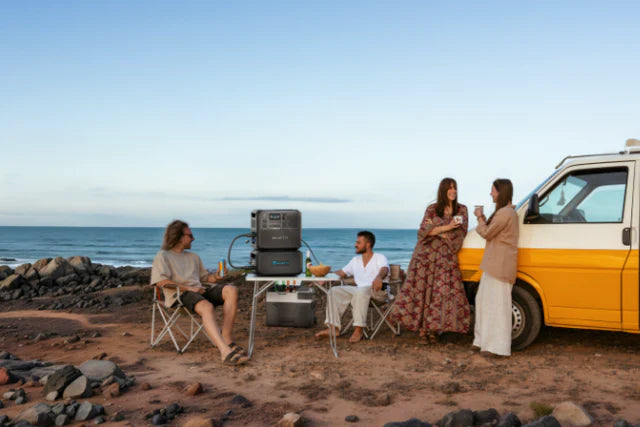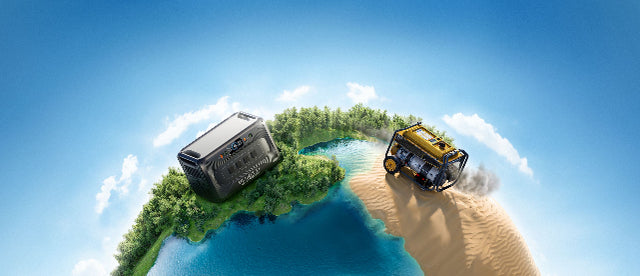Generators are effective appliances in providing power backups, especially during emergencies. However, as a first-time buyer, you might wonder how long a generator lasts without power. This is influenced by several factors, such as load capacity, type of generator, and fuel type and capacity, to name a few.
Such insights are essential in ensuring your electrical activities run smoothly with minimal downtime. Read on to familiarize yourself with how long a generator can run without power, types of generators, and practices to enhance your generator runtime. We have also shared tips on the top-rated solar generator kits to help you choose the best.
Types of Generators
There are different types of generators, which vary based on size, type of fuel, and electrical needs. Here is a handy guide on the most renowned generator types:
Portable Generators
As the name suggests, portable generators are small-sized options that can be used for small-scale electrical functions. Portable generators are not ideal for providing electricity for an entire home or factory, as they do not produce much power. They are mostly applicable when traveling, phone charging, and camping. You can also use them for powering electronic gadgets, and they offer great value for affordability.
Inverter Generators
Inverter generators are prominent for offering quiet electrical operations and are ideal for fuel efficiency. Their clean electrical supply makes them an excellent option for powering sensitive electrical devices. However, they have a higher price than standard generators and vary in size based on power output. For instance, a large inverter generator can meet the electrical needs of an entire household, while a smaller one can be used to charge laptops, phones, and camping needs.
Standby Generators
Standby generators are great for large-scale power supplies, as they are large appliances with relatively higher power. They can be used to supply electricity to an entire home and for commercial purposes such as in industries and large businesses. Standby generators can supply energy for days, depending on the size and fuel type. These generators are also great power backups as they can automatically turn on, which minimizes downtime in your electrical needs.
Thus, standby generators are great for people and businesses situated in areas with high records of power outages. But, they require professional installation and come at a comparatively higher price than their smaller counterparts.
Solar-Powered Generators

Solar-powered generators operate by turning solar energy into electrical power. They are a clean energy source and suit people needing eco-friendly generators. You can use them indoors as they utilize renewable energy and do not produce emissions. If you want to go off the grid or use a generator that is good for the environment, a solar-powered generator is definitely a great option.
How Long Do Generators Last Without Power?
The main factor that determines how long a generator can run without power is the fuel and load capacity, as articulated below:
Gasoline and Diesel Powered Portable Generators
Both diesel and gasoline are petroleum products commonly used to run portable generators. Diesel generators are mostly used to run heavier electrical operations and can supply power for 24 to 48 hours. On the other hand, gasoline provides a relatively smaller power supply than diesel and has a runtime of 8 to 12 hours. This will also depend on the tank size and the generator's configuration. Larger fuel tanks will provide power for longer durations before refueling.
Natural Gas Powered Portable Generators
Natural gas portable generators are connected to a gas line and do not require refueling, as seen in diesel and gasoline options. This means they can run consistently for as long as they are connected to the gas line. But remember that certain factors, such as engine temperature and oil usage, may influence the runtime of your natural gas generator. These generators can operate for eight days on average, provided they are subjected to the best conditions.
Propane Powered Portable Generators
The duration a propane generator will last depends on the propane required to run the machine and the fuel tank size. For instance, a 4.6-gallon generator will run for approximately 5 hours, while a 1000-gallon generator can supply energy for up to 16 days. They are quite effective compared to diesel and gasoline as they have clean energy production and a higher power supply.
Solar-Powered Generators
The most critical factors in averaging a solar-powered generator's runtime are energy storage and battery capacity. Solar-powered generators with smaller batteries will last for a shorter period compared to ones with larger batteries. In addition, the number of connected electrical devices reciprocates how long your generator will last. If the generator is connected to many devices, the batteries will drain fast, and thus, a shorter runtime.
Which One Is Best for Your Home?
Several factors determine the best generator option for your household needs. They include:
Wattage needs – Different homes have different power needs. This will help determine the best generator to purchase. Homes with small-scale power will go for smaller generators, while those with higher energy needs, such as air conditioning, water heaters, and refrigeration, require high-output generators.Maintenance and fuel costs – Every generator requires maintenance but varies based on configuration and features. The fuel varies from generator to generator, which also dictates the designated costs. Ensure you purchase a generator that suits your maintenance and fuel cost capability.
Indoor or outdoor installation – Some generators produce emissions while others do not. Hence, if you intend to install the generator in the house, you should go for one that does not produce emissions, such as natural gas and solar-powered generators.
Related articles: How to Choose the Best Solar Generator for Home Backup Power?
How Big a Solar Generator Do I Need for My Home?
What is the Alternative to a Generator for Home Backup Power?
Top Three Solar Generator Kits for You
Solar panels are an ideal solution in generator power, as they provide clean energy, have easy maintenance, and offer greater convenience. After understanding the different types of generators and how long they can last without power, let us look at the top three solar generator kits for you.
BLUETTI AC200MAX + 3*PV200 Solar Generator Kit

The BLUETTI AC200MAX Solar Generator kit has outstanding 2048 LFP cells and is fitted with a reliable 2200W inverter. This makes it a safe power option with reliable performance for your power needs. It also has an expandable capacity of up to 6,144Wh with 2xB230 or 8192Wh with 2xB300.
This device supports super-fast charging, which can be filled within 5 hours using a solar or AC adapter. The dual charging allows up to 900W of solar and up to 500W of AC input. It is also equipped with 16 ports that support multiple power needs with the utmost convenience.
The BLUETTI AC200MAX allows you to have an easy time during power backups due to the Smart Control & Monitor in the BLUETTI app. You will also get free local shipping, lifetime customer assistance, and a 2-year hassle-free warranty.
BLUETTI AC200P + 3*PV200 Solar Generator Kit

The BLUETTI AC200P Solar Generator Kit is a remarkable device with a 2000Wh capacity. It is also equipped with a 2000W inverter, which makes it ideal for complex home power supply needs. The device is efficient as it can perform even in low-light situations.
Its fast-charging attributes classify it as a power monster and allow up to 700W solar and 500W AC input. The BLUETTI AC200P allows dual charging and can be charged in less than 5 hours. There are also other ways to recharge, which include solar, AC, generator, car, and lead battery.
The device is quiet, cost-effective, and a great option due to its eco-friendly nature. It has 17 outlets and comes with a 48-month warranty, easy-to-comprehend user manuals, and excellent customer assistance.
BLUETTI AC300 + B300 + 3*PV200 Solar Generator Kit

The BLUETTI AC300 Solar Generator Kit has an outstanding capacity of up to 12,288Wh and a 3000W inverter. Such immense power ensures you can run your power needs for days with no downtime. It supports a 2400W max solar input and 5400W max for fast dual charging on AC and solar.
It has 16 ports that are versatile for your needs, and it has additional features, such as a B300 expansion battery, car charging cable, a 15A AC charging cable, and a whopping 4-year warranty. You will also get friendly customer support for both local and online purchases.
Runtime Factors and Considerations
Various factors determine the runtime capability of your generator, which is essential when assessing your electrical needs. These factors include:
Fuel Type and Capacity
This is the most important factor as it determines how efficient your generator will be based on your power supply needs. For instance, diesel is efficient when running high-output generators, while natural gas is imperative for a consistent power supply. If you are after an environmentally friendly and pollution-free generator, then it is a solar generator. Anyway, the capacity of the fuel tank or batteries will also dictate how long your generator will last.
Generator Load and Power Output
When choosing a generator, ensure you purchase one that meets your specific needs in case of an outage. A generator with a relatively smaller power output to the subjected need will drain faster and thus will not be reliable. You can achieve this by calculating the wattages in your electrical needs and comparing them with the generator load.
Maintenance Practices
When purchasing a generator, evaluate the maintenance practices as they are constant in all types of generators. Standby generators may require professional maintenance as they are more complex than portable ones. Poor generator maintenance may deteriorate the projected runtime. In addition, you need to understand the maintenance costs to ensure they are within your financial capability.
Temperature and Environmental Conditions
Environmental conditions impact the generator's functioning. For example, high temperatures cause lower air density, which creates a burden on the engine. This affects combustion, which often leads to overheating and, in severe cases, may collapse the engine. Humidity and altitude are also factors of concern as they influence the air pressure and density, which are key factors in generator engine performance.
Practical Tips for Extending Generator Runtime
Generators are quite effective during power outages, which brings in the need to increase their lifespan to the utmost possibility. Below are practical tips to help you improve your generator runtime:
Load Device Management
Load device management helps you monitor various aspects of your generator performance, such as voltage and current. It also helps eradicate carbon and ash deposits in various engine components. This helps mitigate the possibility of engine failure and improves the generator's lifespan.
Regular Maintenance
Maintenance is one of the most imperative aspects of generator runtime. Experts recommend that you should conduct maintenance after every six months. Nevertheless, every generator manufacturer has their own recommendations on how often you should conduct maintenances. Some of the most common maintenance practices include changing oil, fuel, and air filters.
Consider Environmental Factors
As stated earlier, environmental factors such as temperature, humidity, and altitude are imperative in generator performance. Hence, you should ensure your generator is situated in ambient conditions to prevent deteriorated downtime and frequent collapses. If possible, you can modify the conditions in the areas in which you have installed the generators.
Final Thoughts
Power supply is essential in home and business settings and outages can be quite detrimental in various aspects. Generators are great power backups, ensuring you run your activities normally during outages. However, different generators have distinct runtimes, which is worth noting when purchasing one. This is influenced by factors such as generator type, fuel type and capacity, and maintenance practices. Before purchasing a backup generator, you should always evaluate such factors based on your energy needs.
